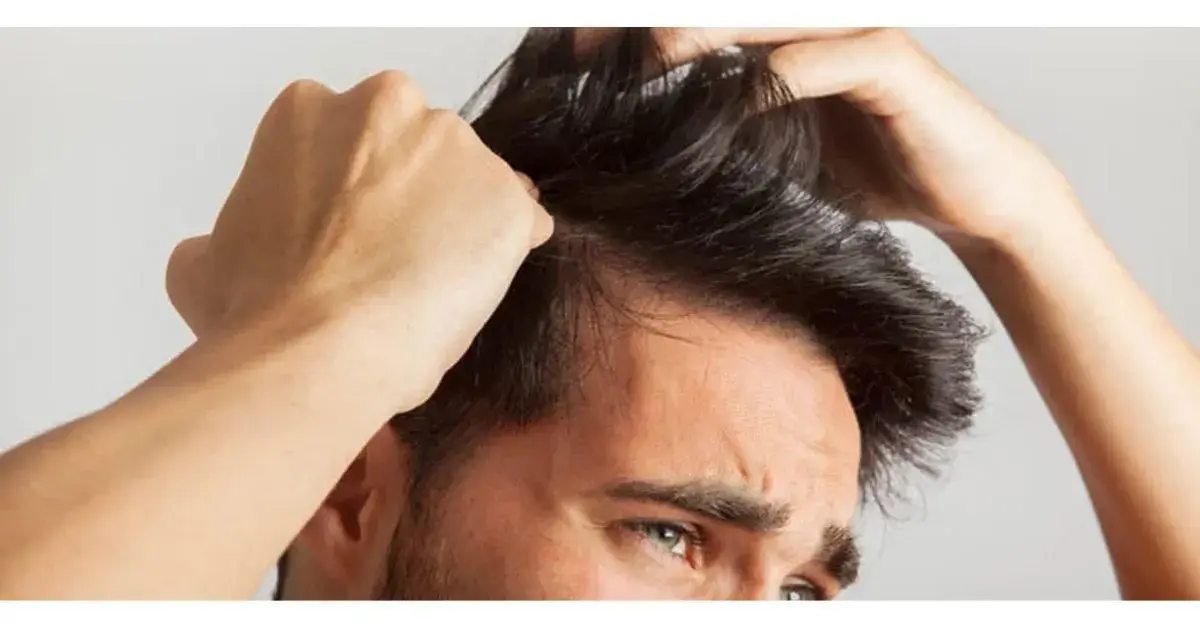Hair loss can be temporary or permanent and can affect just your scalp or the entirety of your body. It could be brought on by hereditary factors, hormonal changes, illnesses, or a natural aspect of aging. Anyone can experience hair loss on their head, but men experience it more frequently.
Some of the main reasons are:
- Genetic Hair loss
- Poor nutrition
- Medical disorders and hormonal changes
- Stress & Tension
- Medical treatments
- Hairstyles
Table of content
Genetic Hair loss
This is the most common type of hair loss except for any illness and treatment as a natural part but a regular aspect of aging for about 40% of people. It often begins at the temples and moves back up the scalp in men starting in their early adulthood.
It typically happens gradually and in regular patterns, with men experiencing a receding hairline and bald spots and women experiencing thinning hair at the top of the head.
Alopecia areata is a kind of hereditary hair loss in which the body’s immune system mistakenly targets the hair follicles.
Poor Nutrition
Malnutrition is typically thought of as a hunger issue, but in the majority of the world, it is likely the result of a poor-quality diet.
When the body is malnourished, it lacks one or more nutrients essential for proper body function. Several deficiencies, such as zinc or iron deficiency, can lead to hair loss. A, C, D, and E vitamin deficiencies might cause issues.
People who follow a strict diet may occasionally deprive their bodies of the calories or proteins that hair cells require to grow new hair. The body’s hair follicles are one of the first organs to shut down since they consume a lot of energy and are constantly creating hair.
Some many nutritional products and companies claim to stop your hair fall and make them strong, but just some of them are scientifically proven.
Medical disorders and hormonal changes
Permanent or temporary hair loss can result from several circumstances, including hormonal changes brought on by pregnancy, childbirth, menopause, and thyroid issues. Alopecia areata, an immune system-related syndrome that results in patchy hair loss, ringworm infections of the scalp, and the hair-pulling disorder trichotillomania are among the medical conditions (trik-o-til-o-MAY-nee-uh).
Stress & Tension
Many people experience general hair thinning for a few months as a result of some stressful event or an emotional shock. No need to worry because of this reason because this kind of hair loss is temporary
One of the other reasons is a huge release of the stress hormone cortisol into the blood might result from a quick incident of severe emotional or psychological stress. This has the ability to dramatize a significant number of hair follicles. The end outcome is hair thinning or hair loss in spots. Telogen effluvium is the name of the condition.
Medical Treatments
Medication of many kinds might result in hair loss. Most notably, chemotherapy can result in significant hair loss. Before starting treatment, doctors should go over this with their patients.
In addition to chemotherapy treatments, various medications for epilepsy, dementia, skin infections, high cholesterol, blood pressure, depression, and many other illnesses can also cause hair loss as a side effect. Birth control pills, weight-loss medications, and steroids all have the potential to negatively impact hair development.
Before using any of these medications, a doctor should be consulted, and they should only be taken as prescribed. Fortunately, hair loss caused by most medical treatments is reversible and should stop once the medications are stopped.
Hairstyles
Hair loss can eventually result from hairstyles that strain your hair constantly. Traction alopecia is the term for this.
For instance, if the hairs are tied excessively tightly, tight braids, cornrows, or dreadlocks may eventually result in hair falling out. People with long hair who have tightly held buns or ponytails may experience a similar result.
The same result might be obtained by using hair extensions, Hair gels & hair sprays that pull on the hair. Last but not least, some individuals who wear hair rollers to bed have hair loss
Here are some tips that may help you to prevent hair loss
- Handle your hair with care. When brushing and combing your hair, use a detangler and try not to pull on it, especially if it’s wet. A wide-toothed comb could aid in preventing hair loss. Do not subject your hair to severe treatments like hot rollers, curling irons, hot-oil treatments, or permanents. Reduce the tension on your hair caused by braids, rubber bands, and barrettes.
- Consult your doctor if you are using any drugs or supplements that could be causing hair loss.
- Avoid exposing your hair to UV rays from the sun and other sources.
- Give up smoking. According to certain studies, smoking and male pattern baldness are related.
- Ask your doctor about a cooling hat if you are receiving chemotherapy. Using this cap during chemotherapy will lessen your chance of hair loss.
You don’t need to worry about hair loss treatment, especially when it comes to a hair transplant. Book a consultation with Tas Hair Clinic to get the best information about hair transplants and hair surgery
